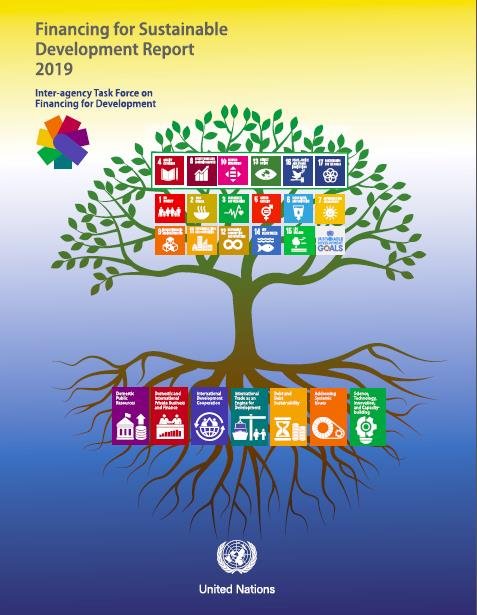- Share this article
- Subscribe to our newsletter
2019 Financing for Sustainable Development Report
The 2019 Financing for Sustainable Development Report was published by the Inter-agency Task Force on Financing for Development in early April 2019.
In the report, sixty-plus international organisations, led by the United Nations and including the International Monetary Fund, the World Bank Group and the World Trade Organization, jointly warn that unless national and international financial systems are revamped, the world’s governments will fail to keep their promises on such critical issues as combatting climate change and eradicating poverty by 2030.
But the report also finds that investment has gained strength in some countries and interest in sustainable investing is growing, with 75 per cent of individual investors showing interest in how their investments affect the world.
And yet, greenhouse gas emissions grew 1.3 per cent in 2017; investment in many countries is falling; and 30 developing countries are now at high risk or already in debt distress. At the same time, global growth is expected to have peaked at around 3 per cent.
Making global finance more sustainable
The international agencies recommend concrete steps to overhaul the global institutional architecture and make the global economy and global finance more sustainable, including:
- supporting a shift towards long-term investment horizons with sustainability risks central to
investment decisions; - revisiting mechanisms for sovereign debt restructuring to respond to more complex debt instruments and a more diverse creditor landscape;
- revamping the multilateral trading system;
- addressing challenges to tax systems that inhibit countries from mobilizing adequate resources in an increasingly digitalized world economy; and
- addressing growing market concentration that extends across borders, with impacts on inequality.
At the national level, the report puts forward a roadmap for countries to revamp their public and private financial systems so as to mobilize resources for sustainable investment. It introduces tools for countries to align financing policies with national sustainable development strategies and priorities.
Fintech - digitally enabled innovation in the financial sector
One example of the opportunities and challenges the report discusses is new technologies and fintech (digitally enabled innovation in the financial sector). With more than half a billion people gaining access to financial services in recent years, the appeal of fintech is clear. But as new players enter and rapidly change the financing marketplace, regulators struggle to keep pace. As fintech grows in importance, activities outside the regulatory framework, if left unsupervised, may put financial stability at risk.
Fintech’s promise can pay off with regulatory approaches that address these concerns, but these need to be implemented without stifling innovation. To this end, the report emphasises the importance of discussions between fintech companies, financial institutions and regulators. It finds that regulatory attention will need to shift to financial activities and their underlying risks, no matter the entity that engages in them, rather than by institutional type.
This report is the basis for discussions at the ECOSOC Forum on Financing for Development (15-18 April 2019), where Member States agree on measures necessary to mobilise sustainable financing.
(UNDP/ile)
More information:
Download the report





Add a comment
Be the First to Comment